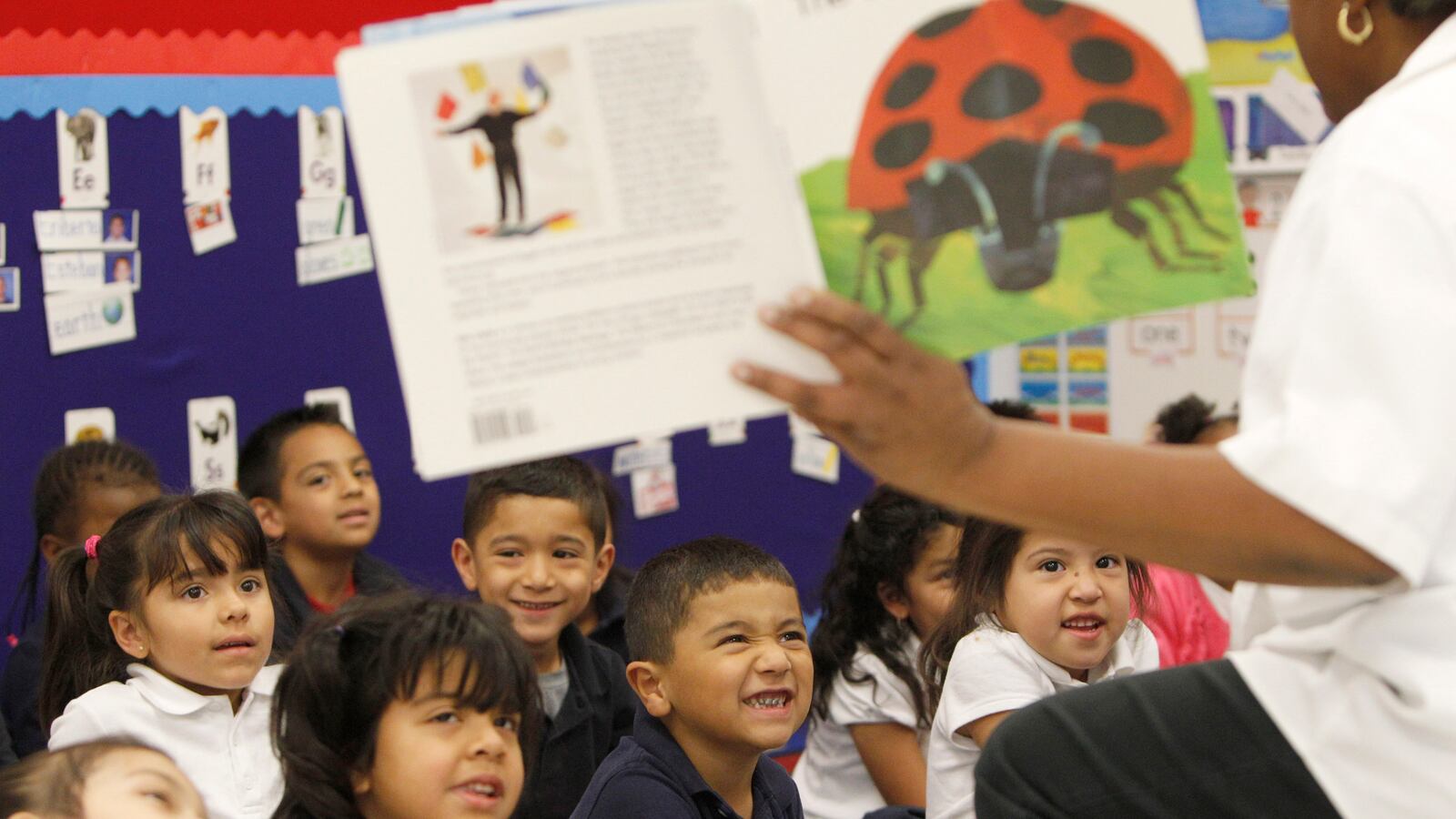One of the policy proposals laid out in the State of the Union address is a universal Pre-Kindergarten program. While Pre-K seems like a good idea, many are skeptical as to how effective the program will be in practice.

Suzy Khimm of Wonkblog says that without a quality program (like that of Oklahoma), the effects on young children will be minimal at best.
[Studies show that] the pre-K programs in Tulsa significantly improved young children’s ability to identify letters, spell and solve problems—leaping an average of five months ahead in pre-math and nine months ahead in pre-reading skills…
Skimping on quality to save money could undermine the entire effort, [researchers warn]. While Florida also has universal pre-K—with an even higher enrollment rate than in Oklahoma—politicians there decided “to do it on the cheap,” he said.
Megan McArdle of the Daily Beast expands upon this issue of quality and also proposes that universal Pre-K should be aimed only at those who are considered 'at-risk.'
There's no evidence that I'm aware of that pre-school helps middle class kids; it helps poor kids because it makes up for the stuff that middle class parents do (reading readiness, for example), and poor parents can't or don't. So if we're going to pass a big expensive new program aimed at helping poor kids with serious deficiencies in their home environment, I want to target it on those kids, to make sure that they get as much benefit as possible.
Taking a completely different approach to question the effectiveness of Pre-K, Rachel Ryan of the Huffington Post describes the effect of children who are prematurely separated from their mothers.
A study released by the National Institute of Child Health and Human Development found that the "more time children spent in child care from birth to age four-and-a-half... the less likely [they were] to get along with others, as more assertive, as disobedient, and as aggressive."






